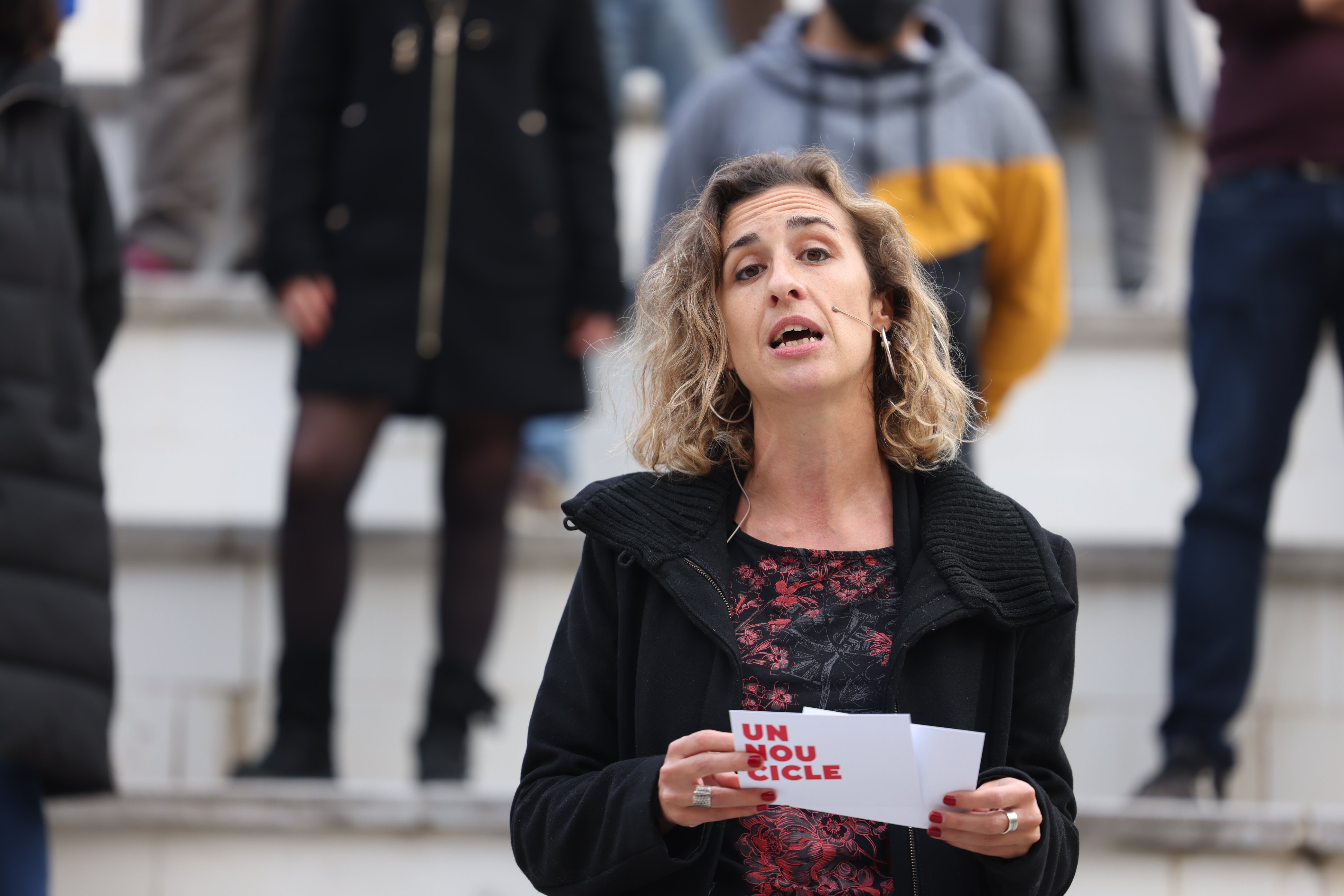A court in the Catalan city of Tarragona has ordered the arrest of MP Laia Estrada, of the pro-independence CUP party. She is accused of public disorder in a demonstration held on December 21st, 2018, the day the Spanish government held a special cabinet meeting in Barcelona.
The 38-year old parliamentarian and teacher was called to testify on the matter in the courts of Tarragona on December 30th, 2020 and January 21st, 2021, but did not appear, which is why the judge has issued an arrest warrant.
On December 21st, 2018, to allow the cabinet meeting to take place, access to a section of central Barcelona was cut and 9,000 police took part in an operation to protect the meeting venue, the Llotja de Mar. Rallies took place in several parts of the city, denouncing the repression of the independence movement and the jailing of its leaders, and there were Mossos d'Esquadra police baton charges in the face of protests involving 80,000 people.
There were also demonstrations in Girona, L'Ampolla, Lleida and Tarragona, and it was in this last city where Estrada took part in a demonstration.
Speaking to the press today outside the Catalan Parliament, the MP asked journalists to do some research about the demonstration she took part in: "Basically, we dedicated ourselves to walking a lot. There was no type of disorder, no type of violence, but both for myself and others who are investigated, they accuse us of offences of public order, which imply violence".
The judge issued the arrest warrant for Estrada due to her “unjustified” absence when called to declare as a defendant. The MP's response: "We are in this situation because in the CUP we have decided not to appear voluntarily for judicial processes that reach us from the state which are complete fantasies, put together by the Mossos d'Esquadra police."
The left-wing politician noted that there were large numbers of Mossos police around her as she gave her press conference outside Parliament, and suggested that they could "take the opportunity to arrest me quickly now and we'll clear this up sooner."
"There are 3,000 people who are facing retaliation by the state in connection with the independence movement protests. Many of them have been accused by the Catalan government itself", said Estrada. "We don't expect anything else from the state, but we have to denounce that some of these accusations come from the Catalan government."
Five years in prison for a protest?
Preventing the holding of a cabinet meeting is punishable by up to five years in prison. The Spanish Penal Code includes a specific section on this subject, within the chapter on crimes against state institutions and the division of powers. Article 504 states that the penalty for "slandering, insulting or seriously threatening" the Spanish government or the security forces could lead to a heavy fine, and that "the use of force, violence or intimidation" to prevent such a meeting from being held is punishable by three to five years in prison - an offence treated much more punitively than other demonstrations.
..

